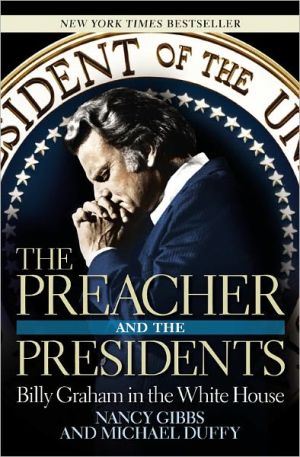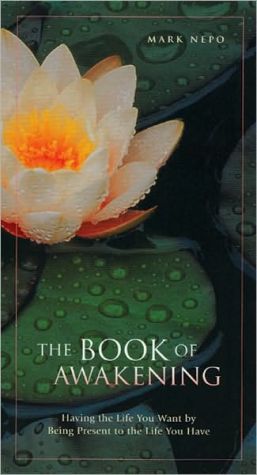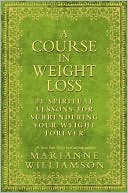The Preacher and the Presidents: Billy Graham in the White House
No one man or woman has ever been in a position to see the presidents, and the presidency, so intimately, over so many years. They called him in for photo opportunities. They called for comfort. They asked about death and salvation; about sin and forgiveness. \ At a time when the nation is increasingly split over the place of religion in public life, THE PREACHER AND THE PRESIDENTS reveals how the world's most powerful men and world's most famous evangelist, Billy Graham, knit faith and...
Search in google:
No one man or woman has ever been in a position to see the presidents, and the presidency, so intimately, over so many years. They called him in for photo opportunities. They called for comfort. They asked about death and salvation; about sin and forgiveness. At a time when the nation is increasingly split over the place of religion in public life, THE PREACHER AND THE PRESIDENTS reveals how the world's most powerful men and world's most famous evangelist, Billy Graham, knit faith and politics together.
The Preacher and the Presidents\ \ By Nancy Gibbs Michael Duffy \ Center Street\ Copyright © 2007 Nancy Gibbs and Michael Duffy\ All right reserved.\ ISBN: 978-1-5999-5734-0 \ \ \ Chapter One\ The Invocation \ I didn't have any other motives throughout my life but to proclaim the gospel. I'm amazed myself that I was able to see all those men become president. -Graham on his calling\ September 23, 1949\ The sky was dark and spitting hailstones on Friday morning just before 11 a.m., when secretary Myrtle Bergheim from the White House press office passed by the pressroom. "The Boss says don't go away," she told the loitering reporters. "He might have a little something later."\ A few minutes later, a dozen reporters gathered around the walnut desk of Charles Ross, Harry Truman's old friend and press secretary. "Close the doors," he said. "Nobody is leaving here until everybody has this statement." He handed out copies. The reporters started reading, whistled through their teeth, then bolted for the door and sprinted through the White House lobby, ripping the nose off a stuffed deer as they raced to the pressroom telephones. Two minutes later the bells on the tickers in newsrooms signaled a flash; by 11:08 the Associated Press bulletin was on the wires.\ "We have evidence," the White House statement announced, "that within recent weeks an atomicexplosion occurred in the U.S.S.R."\ Closing the books on an innocent age, TIME declared that "the news hit the nation with the jarring impact of a fear suddenly become fact.... For the first time, U.S. citizens would know, as much of the world had known since 1945, how it feels to live under the threat of sudden destruction-coming like a clap of thunder and a rattle of hail." Some in Congress raised the question of transferring government agencies out of Washington. Veterans dryly nudged each other: "Better get out your old uniform." Secretary of Defense Louis Johnson urged the newspapers not to overplay the story and fuel panic, guidance that the Hearst papers at least found easy to ignore. The New York Journal-American ran a half-page picture showing Manhattan engulfed in atomic "waves of death and havoc."\ The news came at the end of an unsettling summer, one that had weighed heavily on Truman. His triumphs of the first half of 1949-the signing of the NATO treaty in April, the ultimate success of the Berlin airlift at breaking the Soviet blockade a month later-had given way to a woozy economy and rising fears. The perjury trial of accused Soviet spy Alger Hiss ended in a hung jury in July, with a new trial scheduled for fall. The China lobby, watching the collapse of Chiang Kaishek's nationalist forces in the face of Mao's million-man communist army, was hurling abuse at Truman and Secretary of State Dean Acheson. Unemployment was rising; business profits were down 13 percent. People talked, extravagantly, about depression, the fear that was never far away even in the midst of postwar prosperity. To a group of visiting Girls Nation delegates Truman referred, only half joking since he did it so often, to "this terrible job" that allowed him to live "over there in that great white jail, with the balcony and everything." More seriously, to his cousins Nellie and Ethel Noland, he wrote that he had succeeded in getting himself into "more trouble than Pandora ever let loose in the world."\ Now the Soviets had the bomb. And one week later, on October 1, a communist country comprising one-fifth of the human race inaugurated itself as the People's Republic of China. It was all enough to make a country stop dead and fall on its knees for a moment.\ As it happened, that was just what Billy Graham had in mind.\ Now thirty years old, Graham had been having a hard summer himself. Five years out of Wheaton College, he'd spent most of that time crisscrossing the country to preach at independent revivals and Youth for Christ rallies. The experience had built his reputation and broadened his ministry; but some private encounters had shaken his faith. That year his talented friend and fellow evangelist Charles Templeton had decided to suspend his preaching and head to Princeton Seminary, to put his beliefs to a tough intellectual road test. Whenever he had the chance, he tried to pull Graham along with him.\ "Billy," he said, during one visit to Graham's house in North Carolina, "it's not possible any longer to believe the biblical account of creation. The world wasn't created; it has evolved over millions of years. It's not a matter of speculation, it's demonstrable fact."\ "I don't accept that," Graham said, "and there are reputable scholars who don't."\ "Who are they?" Templeton asked. "Men in conservative Christian colleges?"\ "Most of them, yes. But that's not the point." And then Graham went on to explain what he had learned in his young ministry, something he knew for certain, could "prove" because it happened inside and in front of him whenever he preached-even at the raucous Youth for Christ rallies that he and Templeton had led, which typically featured Bible quiz shows, magic acts, ventriloquists, close-harmony quartets, and a kneeling horse who would tap his hoof twelve times when asked how many apostles there were.\ "When I take the Bible literally, when I proclaim it as God's Word, I have power," Graham explained. "When I stand before the people and say, 'God says,' or 'The Bible says,' the Holy Spirit uses me. There are results. People respond. Wiser men than you or I have been arguing questions like this for centuries. I don't have the time or the intellect to examine all sides of each theological dispute, so I've decided, once and for all, to stop questioning and to accept the Bible as God's Word."\ Templeton was troubled by this. He called it intellectual suicide to actively decide not to question or explore. "Billy, you cannot refuse to think. To do that is to die intellectually." He tried to phrase it in Graham's own scriptural terms: this would amount to rebellion, a breach of faith. "You cannot disobey Christ's great commandment to love God 'with all thy heart and all thy soul and all thy mind.'"\ And so it went between them all year long; they met in New York when Graham came to town, and then one more time in August, at a retreat center just outside Los Angeles. Graham was preparing for his most ambitious crusade yet in the City of Angels. Preachers weren't trying anything like this anymore; there had been few large-scale evangelistic meetings in the United States since World War I and the heyday of Billy Sunday and Aimee Semple McPherson. "We are tired of religious revivals as we have known them," announced the Reverend Willard Sperry, dean of Harvard Divinity School, in 1946. "Among all but the most backward churches it is now agreed that education is the best way of interesting our people in religion."\ Graham's Los Angeles team thought otherwise; they had been organizing local churches and business groups, and the prayer groups had been praying. Organizers spent $25,000 on posters and ads: "Visit the Canvas Cathedral with the Steeple of Light" and hear "America's Sensational Young Evangelist." But first Graham had some demons to lay to rest.\ At the conference center, Templeton confronted him with their growing theological rift, and leveled charges that would follow Graham for years to come. "Billy, you're fifty years out of date," he said. "People no longer accept the Bible as being inspired the way you do. Your faith is too simple. Your language is out of date. You're going to have to learn the new jargon if you're going to be successful in your ministry."\ It was, as they say, a moment of truth. What could be more tempting, to a rising preacher trying to reach young people, a preacher who stressed being approachable and relevant, than to tailor his theology to the tastes of the times, especially if the latest scholarship allowed wider appeal? But to Graham, the choice was not between believing in the Bible's inerrancy or going down a more modern, popular road. For him it came down to this: Believe the Bible or leave the ministry. "It was not too late to be a dairy farmer," he concluded.\ What followed was an event that became so central to Graham's life and ministry that a plaque on the grounds marks the spot where it happened. As he often did when he couldn't sleep and his mind was burning, he went for a walk and wound up in the woods near the retreat center. He opened the Bible on a tree stump and prayed in the moonlight. There was too much in there he couldn't understand, confusion and contradiction and mystery. And finally, he felt the spirit release him, to say, "Father, I am going to accept this as Thy word-by faith."\ He recalled feeling God's presence as he hadn't in months, and sensed that a spiritual battle had been fought and won. In years to come, when Winston Churchill asked him about heaven, or Eisenhower about salvation, or Johnson about sin and damnation, he could answer them with a kind of certainty that made men in authority sit back and listen. He was the messenger; he was not scripting the message, and his power was perfect so long as he did not embellish or interpret the word he had been given to transmit. His strength was absolute in this role. So was his confidence.\ The Canvas Cathedral\ And so he descended on Los Angeles just as the news of the Russian bomb was breaking, with a message for a shaken city. A "Fact Sheet" prepared by the Christ for Greater Los Angeles sponsors described him as "tall, slender, handsome, with a curly shock of blond hair, Graham looks like a collar ad, acts like a motion picture star, thinks like a psychology professor, talks like a North Carolinian and preaches like a combination of Billy Sunday and Dwight L. Moody. He makes no pretensions to fame-says he's just a North Carolina hill-billy-believes in the literal interpretation of Bible truths-wears loud ties and socks because 'you don't need to be a long-hair to be good' and is recognized as America's outstanding evangelist.... He uses few illustrations, no sob stories, absolutely no deathbed stuff. His illustrations are usually current events."\ A local Salvation Army public relations man, helping with the crusade publicity, had persuaded some reporters to come to Graham's first press conference. In the papers the next day, no one wrote a word.\ Graham immediately wrapped the breaking news into his sermons. "Russia has now exploded an atomic bomb. Do you know the area that is marked out for the enemy's first atomic bomb? New York! Secondly, Chicago; and thirdly, the city of Los Angeles." Would God protect "this city of wickedness and sin, this city that is known around the world because of its sin, crime and immorality"? Graham paced the stage, using a lapel mike for the first time, wearing argyle socks and bright hand-painted ties and a double-breasted suit that flapped on his lanky frame, waving his arms as he hurled God's wrath over the crowds. He surveyed their sins-divorce, gambling, false prophets, and treachery. "Do you know that the Fifth Columnists, called communists, are more rampant in Los Angeles than any other city in America? We need a revival."\ Graham's universe was drawn by hand in black and white. For people wrestling with all kinds of new uncertainty in the postwar shadows, his conviction and the simplicity of his message were bracing and new. In the opening meetings, he preached to about three thousand people a night, which was a respectable number, except that he suspected that most were already Christians. That would change, however, as the days passed. Maybe it was something in the air, something about the time. Maybe it was normal curiosity, in a city that likes a good show, that drew people down to the converted eight-peaked Ringling Brothers circus tent. And this was Hollywood, where a high-profile convert can make all the difference in the world. Among those answering the call were a Mob wiretapper, an Olympic runner, and a famously sinful radio cowboy who found Jesus and went on to run for president as a Prohibitionist.\ One night Graham and his team arrived at the tent to be greeted by a herd of photographers and reporters. What on earth had happened? "You've just been kissed by William Randolph Hearst," one newsman explained.\ Graham had never met the newspaper baron; he was later told that Hearst and Marion Davies had attended a crusade in disguise, after learning about it from a housekeeper named Hedla who used to listen to Graham on the radio. It is just as likely that Hearst came around because he was acutely interested in anything that a great many people were interested in. As the legend goes, he returned to his office and sent a two-word telegram to all his papers: "Puff Graham." The Hearst papers began running stories about the crusade all across the country, and it was not long before other news organizations noticed. By the final weeks of the crusade, all the wire services as well as LIFE, Newsweek, and the major papers were running stories.\ Reporters called it the greatest revival in the history of Southern California. "Thousands Hit Sawdust Trail" was the headline in the New York Sun. "Old-style religion is sweeping the City of Angels with an evangelistic show overshadowing even Billy Sunday." And with that, Graham's words became national news. They were consumed by an audience hungry for explanations about how, in the space of four years, America had gone from an astounding victory over fascism to a global military and political struggle against a communist enemy with the potential to blow up their cities. As Truman reminded people, the Soviet nuclear breakthrough had been foreseen. But that it came several years earlier than expected seemed to confirm the fears that Joe McCarthy had been fanning all year, that communist spies had infiltrated the deep reaches of American power and stolen her secrets.\ Graham warned of the spies in their midst and then addressed the most dangerous foe of all, against whom Christ alone offered protection. "Western culture and its fruits had its foundation in the Bible.... Communism, on the other hand, has decided against God, against Christ, against the Bible and against all religion," he said. "Communism is a religion that is inspired, directed and motivated by the Devil himself."\ In the end the Los Angeles crusade lasted not three weeks but eight. Some 350,000 people attended, including stars like Jane Russell and Gene Autry. One movie star, not yet converted, told Graham bluntly, "Billy, you can't compete with us in entertainment. We know all the ropes. If you get up there and preach what's in the Bible, I'll be on hand every night."\ Graham emerged a full-fledged celebrity; on the train back east people stopped and recognized him. His next crusade, in Boston starting on New Year's Eve 1949, was covered by the Boston papers as front-page news. They heralded the arrival of the "swashbuckling southerner" who shared, quite precisely, the dimensions of heaven as "sixteen hundred miles long, sixteen hundred miles wide and sixteen hundred miles high," with streets of gold that they'd drive down in a yellow Cadillac, and gates of pearl and trees bearing a different kind of fruit every month. "We became the object of a circulation war between the newspapers," Graham said, and each paper tried to outdo the others with its coverage. Years later, when confronted with some of his statements from these heady months, Graham would refer to his "boy preacher" days and note wryly that some of his theology had evolved.\ Graham's own political career was also launched. He was invited to pray at the Massachusetts House of Representatives; reporters wanted to hear his positions on everything from the death penalty to foreign aid to the Marshall Plan. "What I said was being quoted all of a sudden, and I knew I wasn't really qualified," he admitted later. "I didn't really have the experience yet to say the right things, but the people expected me to speak with that authority. I was just scared to death." He told reporters that he thought a revival would do more than the Marshall Plan to combat evil, and warned that "we are going to spend ourselves into a depression. We can't keep on taking care of the whole world." Seeing the reporters scribbling his words, he quickly added, "But don't anybody tell Mr. Truman I said so."\ As it happened, Truman would hear anyway.\ (Continues...)\ \ \ \ \ Excerpted from The Preacher and the Presidents by Nancy Gibbs Michael Duffy Copyright © 2007 by Nancy Gibbs and Michael Duffy. Excerpted by permission.\ All rights reserved. No part of this excerpt may be reproduced or reprinted without permission in writing from the publisher.\ Excerpts are provided by Dial-A-Book Inc. solely for the personal use of visitors to this web site. \ \
Introduction: The Lions and the Lamb viiThe Invocation 1Harry and Billy 11Truman's Rejection 22Christian Soldier 31One Nation, Under God 41The Man Who Was Going Places 54Ambassador at Large 63The Holy War 77"I Am for You" 86The Meaning of LIFE 100The Fourteen-Carat-Gold Photograph 107Tragedy and Transition 113The Battle for Billy 126Preachers and Protesters 134"The Strong Arm of Empathy" 146The Return of Richard Nixon 157The Courier 165White House of Worship 173Summons for the Silent Majority 1831972: The Race to the Bottom 195The Reckoning 211The Man He Never Knew 219Ford and Forgiveness 232The Campaign That Changed Everything 241The Next Great Awakening 254The Road to Moscow 265The Secret Agent 276The Family Pastor 284"It Was Billy I Reached OutTo" 299Bill and Hillary 306Mending the Breach 317The Mustard Seed 326Conclusion: Lessons of a Lifetime 339Afterword 349Acknowledgments 353A Note on Sources 357Notes 360Index 397
\ From Barnes & NobleWith the role of religion in public life assuming a prominent place in public discourse, award-winning journalists Gibbs and Duffy have penned possibly the most engaging, balanced, and exhaustively researched work on the topic to date. Examining evangelist Billy Graham's extraordinarily close ties with every American president from Harry Truman to George W. Bush, The Preacher and the Presidents sheds intriguing light on the uneasy relationship between faith and politics and its historical effects on American democracy.\ \








